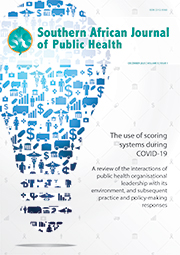Research

Pill-swallowing – a bitter experience for some despite the ease of the swallow
Abstract
Background. The need for pills in the form of analgesics, psychotropic medication, chronic medication or vitamins and supplements is gaining momentum globally. In developing contexts, social circumstances, the burden of disease, violence and poor lifestyles and eating habits all contribute to reliance on medication. Despite this knowledge, research that captures pill adherence, pill swallowing, coping by individuals in general practice and pill modification by the general public has been minimal in South Africa, a developing country.
Objectives. To address this gap by addressing the question: what are the experiences of adults in general practice who take pills? The objectives were to document the pill-swallowing experience of the adult, to identify variables that positively and negatively affected the swallowing process and to understand the perceptions of pill-swallowing, and what informed these perceptions. Methods. An exploratory qualitative research design was used. Using convenience and snowball sampling, 73 participants were recruited, and consented to participate. They completed a researcher-developed questionnaire. Thematic content analysis and descriptive statistics were used for analysis.
Results. The results indicated that 67% of the participants included in the study found the swallowing process to be easy, whereas 33% found it to be unpleasant. A total of 56 participants described how the properties of the pill affected the swallow. They had a more pleasurable experience when taking small, coated capsules rather than large, uncoated tablets.
Conclusion. This study showed how pill properties could cause symptoms of dysphagia. It increases our understanding of the way that individuals from the general population who do not present with dysphagia may still experience problems with swallowing when it involves pills.
Authors' affiliations
J Seedat, Department of Speech Therapy, Faculty of Humanities, University of the Witwatersrand, Johannesburg, South Africa
A Zayannakis, Department of Speech Therapy, Faculty of Humanities, University of the Witwatersrand, Johannesburg, South Africa
Full Text
Cite this article
Article History
Date published: 2020-08-14
Article Views
Full text views: 2579

.jpg)


Comments on this article
*Read our policy for posting comments here